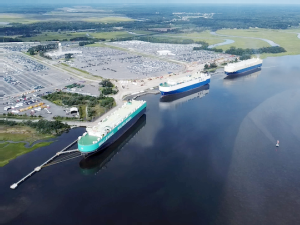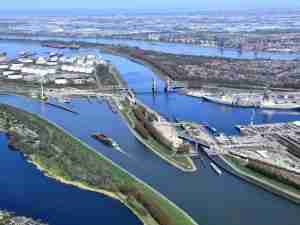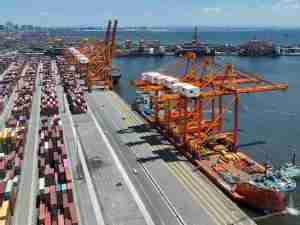Francesco Nerli, president of the group that represents the country's biggest ports, said Italian ports need at least 300 million euros of annual public funding for the next 10 years to help improve logistics and connections with the rest of Europe.
"We have been discussing this for two and a half years and so far the government has done nothing," Nerli said in an interview. "Public investments in ports are blocked in our country," he said.
He said Italian ports were asking for about 3 percent of the roughly 9 billion euros that the state receives every year from value-added tax (VAT) revenues from ports to be set aside for investments, mainly in road and rail links.
Italy's center-right government presented some reform measures last year but was criticised by port authorities and industry groups for not planning any substantial changes or progress in boosting ports' financial autonomy.
Italy's ports, which contribute more than 30 billion euros to its economy, are often bypassed by ships coming through the Suez canal with Asian goods because of slower services than northern rivals and because they are not as well equipped for big cargoes.
Ports in northern Italy such as Genoa are no further from the heart of Germany, Europe's biggest market, than Europe's largest port in Rotterdam, but poorer connections make them less attractive transit points.
Competition
Rotterdam port is investing 4 billion euros over the next few years on a massive land reclamation project and on upgrading facilities, and is also urging the Dutch government to improve transport in the port area.
Nerli said public funding for Italian ports would help stimulate private investments, which he said were normally focused on improving private facilities within the harbours.
The infrastructure arm of Intesa Sanpaolo is interested in investing in Italian ports, potentially alongside Unicredit and Italian state holding CDP, its chief executive said in March.
Nerli said cargo volumes at Italian ports were picking up after a decline in the economic downturn, which knocked container volumes by about 10 percent in 2009.
But he said the pick-up was slow and volumes had not yet returned to 2007 highs, while turmoil in North Africa added to an uncertain outlook for 2011.
Italy handles roughly 15 percent of Europe's container traffic annually, compared with more than 50 percent by northern European ports, according to industry figures.
Nerli said the cost of labour was also making southern ports such as Gioia Tauro in Calabria uncompetitive with other ports in the Mediterranean region, including ports in North Africa.
Lowering this cost, and bringing fuel taxes on ports in line with European standards, would help boost competitivity in the south, he said. (Reuters)










